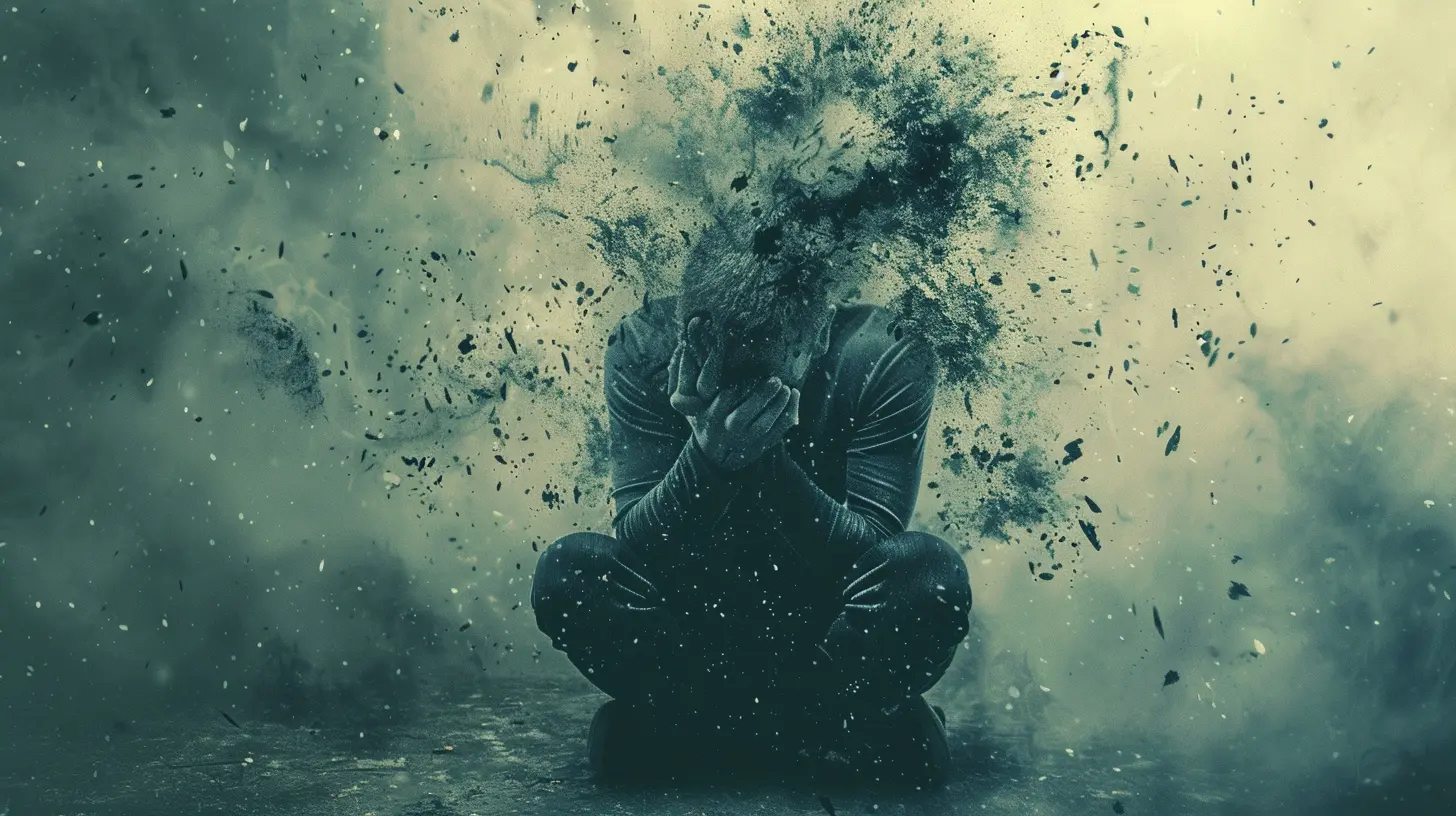Understanding Loneliness: Its Impact on Mental Health and How to Combat It
20 August 2025
Loneliness is more than just being physically alone — it's a deep emotional feeling that can creep up on you even when you're surrounded by people. The truth is, loneliness is a complex and often misunderstood aspect of human life. Yet, it’s something most of us have experienced at one point or another.
In fact, modern society, with all its technological advancements, is increasingly fueling this sense of isolation. Strange, right? You’d think with social media and instant messaging, we'd feel more connected than ever. But for many, the opposite is true. Loneliness is becoming an epidemic, especially among younger generations and older adults. And unfortunately, it's not just an uncomfortable feeling — it has real consequences for our mental health.
So, what exactly is loneliness? How does it impact our mental well-being? And most importantly, how can we fight it? Let’s dive in.

What is Loneliness?
Before exploring the effects of loneliness on mental health, it’s essential to understand what loneliness actually is.Many people confuse loneliness with being alone, but they’re not the same thing. You can be alone and not feel lonely, just as you can be in a room full of people and feel utterly isolated. Loneliness is more about the quality of your relationships rather than the number of people around you.
Loneliness is essentially a subjective emotional state. It happens when there’s a gap between the social connections you want and the ones you have. It’s that nagging feeling that something is missing, that you’re disconnected, or that nobody truly understands you.
Think of it like hunger. Just as hunger signals that your body needs food, loneliness signals that your mind needs social nourishment.

The Different Types of Loneliness
Did you know that loneliness isn’t a one-size-fits-all experience? Yep, there are actually different types of loneliness, and recognizing which type you're dealing with can help you find the right solutions. Let’s break it down:1. Emotional Loneliness
This is the type of loneliness you feel when you lack close emotional connections. It’s that deep longing for someone to understand you, someone you can confide in without judgment. Emotional loneliness often strikes when people feel isolated even in their relationships.2. Social Loneliness
Do you ever feel like you don’t belong to a particular social group? That’s social loneliness. It happens when you lack a sense of community or a group of friends to share experiences with. This type of loneliness is common when people move to a new city or start a new job and struggle to fit in.3. Existential Loneliness
This one’s a bit heavier. Existential loneliness is the feeling that no one can truly understand your life experiences or your purpose. It’s the sense that, ultimately, we are all alone in the universe. Sounds bleak, right? But it’s a feeling many people experience at some point, particularly during major life transitions.
The Impact of Loneliness on Mental Health
Now that we’ve established what loneliness is, let’s explore its effects on mental health. Spoiler alert: they’re not pretty.1. Loneliness and Depression
Loneliness and depression are like best friends — one often invites the other. Long-term loneliness can exacerbate feelings of sadness, hopelessness, and worthlessness, which are all hallmarks of depression. In fact, some studies have shown that lonely people are more likely to experience depressive symptoms.It’s a vicious cycle. You feel lonely, which makes you feel sad, and that sadness may lead you to withdraw even further from others, which only deepens your loneliness. It's like being stuck in quicksand — the more you struggle, the deeper you sink.
2. Loneliness and Anxiety
Similarly, loneliness can fuel anxiety. When we feel isolated, we often start to worry about our relationships and our place in the world. We might obsess over why we don’t have close friends or why people don’t seem to understand us.For some, this can spiral into social anxiety. The fear of rejection or judgment can become so intense that it prevents us from reaching out and forming new connections. Before we know it, we’re stuck in a self-imposed prison of isolation.
3. Loneliness and Cognitive Decline
Loneliness isn’t just an emotional experience — it has physical consequences too. Research has shown that chronic loneliness can lead to cognitive decline, particularly in older adults. This means that lonely people are more susceptible to memory loss, poor concentration, and even dementia.Why? It's thought that social interactions play a crucial role in keeping our brains active and engaged. Without them, the brain doesn’t get the stimulation it needs to stay sharp.
4. Loneliness and Sleep Disorders
Ever had a night where you just couldn’t turn your brain off? Where the loneliness seemed to keep you awake, tossing and turning? You’re not alone. Loneliness can significantly impact sleep quality.Lonely individuals are more likely to suffer from insomnia or disrupted sleep. And as we all know, poor sleep only makes everything worse, including your mental health. It's a nasty domino effect: loneliness leads to poor sleep, which leads to worse mental health, which leads to more loneliness.

How to Combat Loneliness
Okay, enough with the doom and gloom. Let’s talk about solutions. Loneliness may be a tough nut to crack, but it’s not impossible to overcome. Here are some actionable strategies to help you combat loneliness and improve your mental well-being.1. Acknowledge Your Loneliness
The first step to solving any problem is admitting you have one. It’s okay to feel lonely — it doesn’t mean there’s something wrong with you. Loneliness is a natural human emotion, just like happiness or anger. When you acknowledge your loneliness, you can start to take steps to address it.2. Focus on Quality, Not Quantity
You don’t need a million friends to feel connected. Often, one or two deep, meaningful relationships are enough. Instead of trying to expand your social circle, focus on nurturing the relationships you already have. Reconnect with an old friend or spend more time with family members.3. Join a Community
One of the best ways to combat social loneliness is to find a community where you belong. Whether it’s a hobby group, a sports team, or a book club, joining a group of like-minded people can help you feel part of something bigger than yourself. Plus, shared experiences naturally lead to stronger bonds.4. Talk to Someone
If loneliness is taking a toll on your mental health, don’t hesitate to seek professional help. A therapist or counselor can help you unpack your feelings and provide strategies to cope. Sometimes, just having someone to talk to can make a world of difference.5. Limit Social Media Time
It’s ironic, but social media — designed to connect us — often makes us feel more isolated. Constantly seeing other people’s “perfect” lives can make us feel like we’re missing out, even though those curated snapshots rarely reflect reality. Try limiting your time on social media and focus instead on real-life connections.6. Practice Self-Compassion
Loneliness can sometimes lead to harsh self-criticism. You might start to believe that you’re “unworthy” of relationships. But this kind of thinking only makes things worse. Instead, practice self-compassion. Remind yourself that you are deserving of connection, love, and understanding — just like everyone else.7. Volunteer
Helping others can be an excellent way to reduce feelings of loneliness. Volunteering gives you a sense of purpose, and often leads to meaningful social interactions. Whether you're helping at a local shelter or mentoring someone, giving your time can make a big difference in how connected you feel.Conclusion: You’re Not Alone in Feeling Lonely
Loneliness is a universal experience, but it doesn’t have to be a permanent one. By understanding what loneliness is and how it affects our mental health, we can start to take proactive steps to combat it. Whether it’s fostering deeper relationships, finding a sense of community, or seeking professional help, there are ways to break free from the grip of loneliness.Remember, loneliness is like a signal from your mind telling you it’s time for more connection. And while it might feel overwhelming at times, you don’t have to navigate it alone. There are always opportunities to build connections, no matter where you are in life.
all images in this post were generated using AI tools
Category:
Mental HealthAuthor:

Paulina Sanders
Discussion
rate this article
1 comments
Reagan Sawyer
Loneliness is a profound emotional state that can significantly affect mental health. Acknowledging these feelings is the first step to healing. By fostering meaningful connections and engaging in activities we love, we can combat loneliness and cultivate a richer, more fulfilling life.
September 24, 2025 at 2:23 AM

Paulina Sanders
Thank you for your insightful comment! Acknowledging loneliness and fostering connections are indeed crucial steps toward better mental health and fulfillment.


